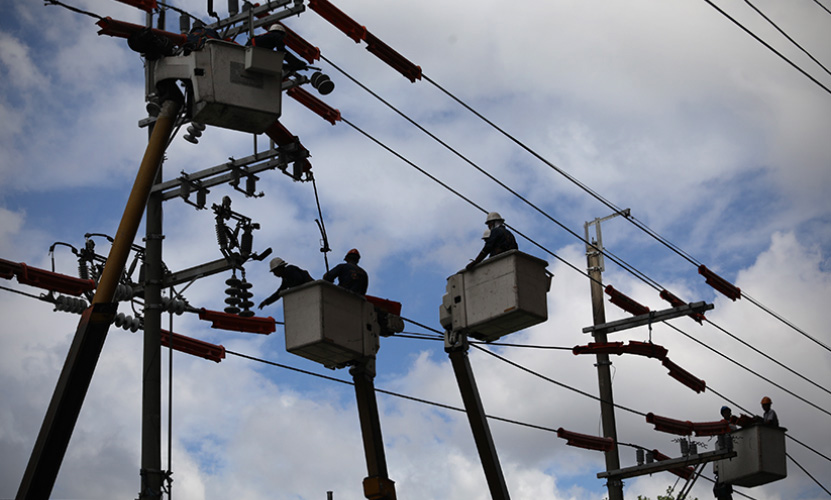
Senator Win Gatchalian is championing a bill which will create direct consumer savings by reducing the amount of system loss charges that electricity companies are allowed to pass on to consumers in their monthly bills.
Senate Bill No. 1623, otherwise known the Recoverable System Loss Act, proposes to decrease the current system loss caps from 8.5% to 5% for private distribution utilities and 13% to 10% for electric cooperatives, resulting in net overall savings on retail electricity as high as P0.66 per kilowatt hour (kWh) in some areas.
“This legislation provides real and immediate relief to our countrymen who are struggling to keep up with the ever rising cost of every day goods and services. For years now, the Filipino people have had to suffer the burden of outrageously high electricity costs. This measure is a crucial step toward alleviating this burden and improving the standard of living in the Philippines,” said Gatchalian, the chairman of the Senate Energy Committee, during his sponsorship speech of the measure.
To illustrate the potential consumer savings if the measure is passed into law, the senator cited in his speech the case studies of two electric cooperatives in Luzon and Mindanao.
According to his estimates, decreasing the system loss cap to 10% would lead to a reduction of Php 0.2363 per kWh in the cost of electricity for the average household serviced by Camarines Sur IV Electric Cooperative, Inc. (CASURECO IV), resulting in annual savings of P283.56 per household. With 61,328 households served, this would mean an estimated total savings of around P17.39 million per year for CASURECO IV consumers alone.
Meanwhile, consumers of the Zamboanga Norte Electric Cooperative, Inc. (ZANECO) would enjoy average annual savings of P196.32 per household due to the expected rate reduction of P 0.1636 per kWh under the 10% cap. This amounts to total savings of P22.5 million per year for the 114,590 households serviced by ZANECO.
“These are but two examples out of the 148 distribution utilities in the country. Imagine the total consumer savings from reduced system losses that can be brought about by this bill,” Gatchalian said.
The senator also took to task the Energy Regulatory Commission (ERC) for failing to incentivize the improvement of the facilities and operations by distribution utilities to reduce system losses. The ERC, which is empowered to regulate system loss charges, has not changed the cap since 2008.
To address this problem, the bill requires the ERC review the cap every three years and devise a performance incentive scheme to encourage system loss reduction. It will also mandates distribution utilities to report their system losses and computation of system loss charges to the ERC annually. Failure to comply will subject both ERC and DUs to administrative penalties.
“System Loss” is defined as the difference between electric energy delivered to the distribution system and the energy delivered to the end-users and other entities connected to the system. There are two types: technical system loss, which refer to the electricity naturally lost while transporting electricity across power lines; and non-technical losses, which refer to electricity lost caused through human actions such as electricity theft and pilferage.


